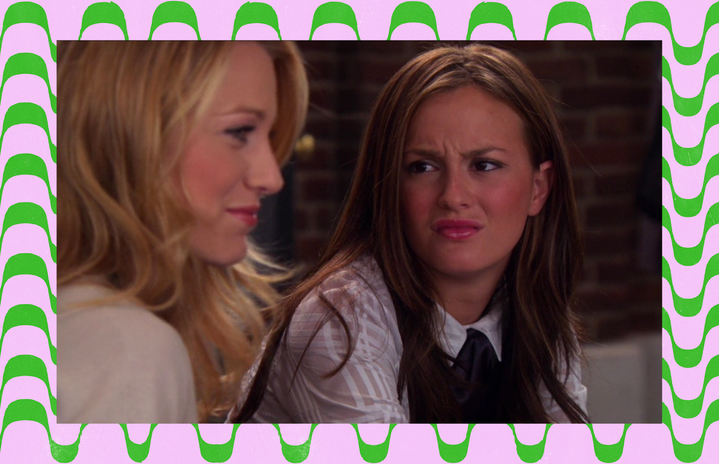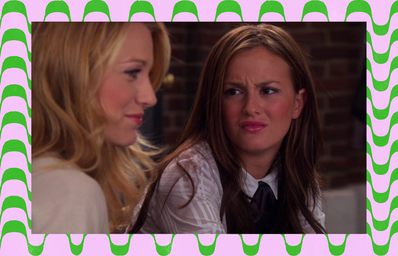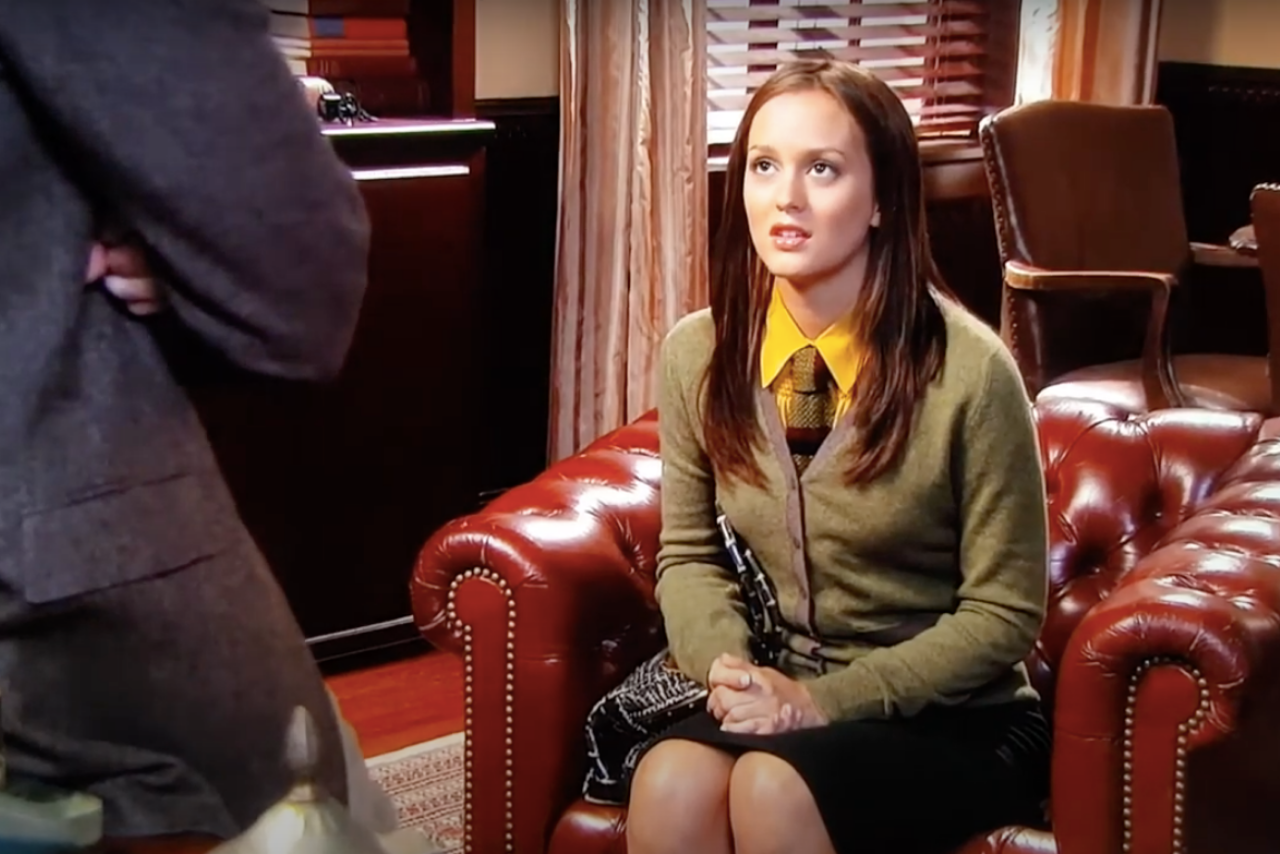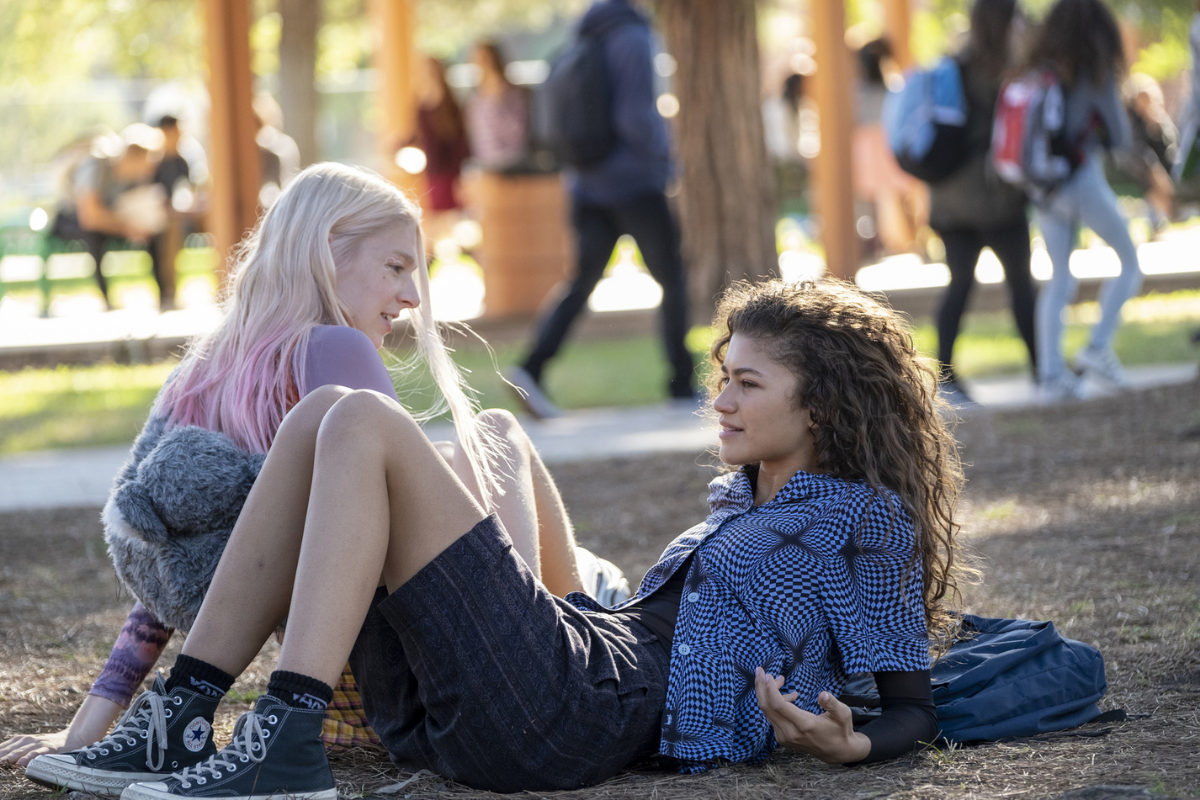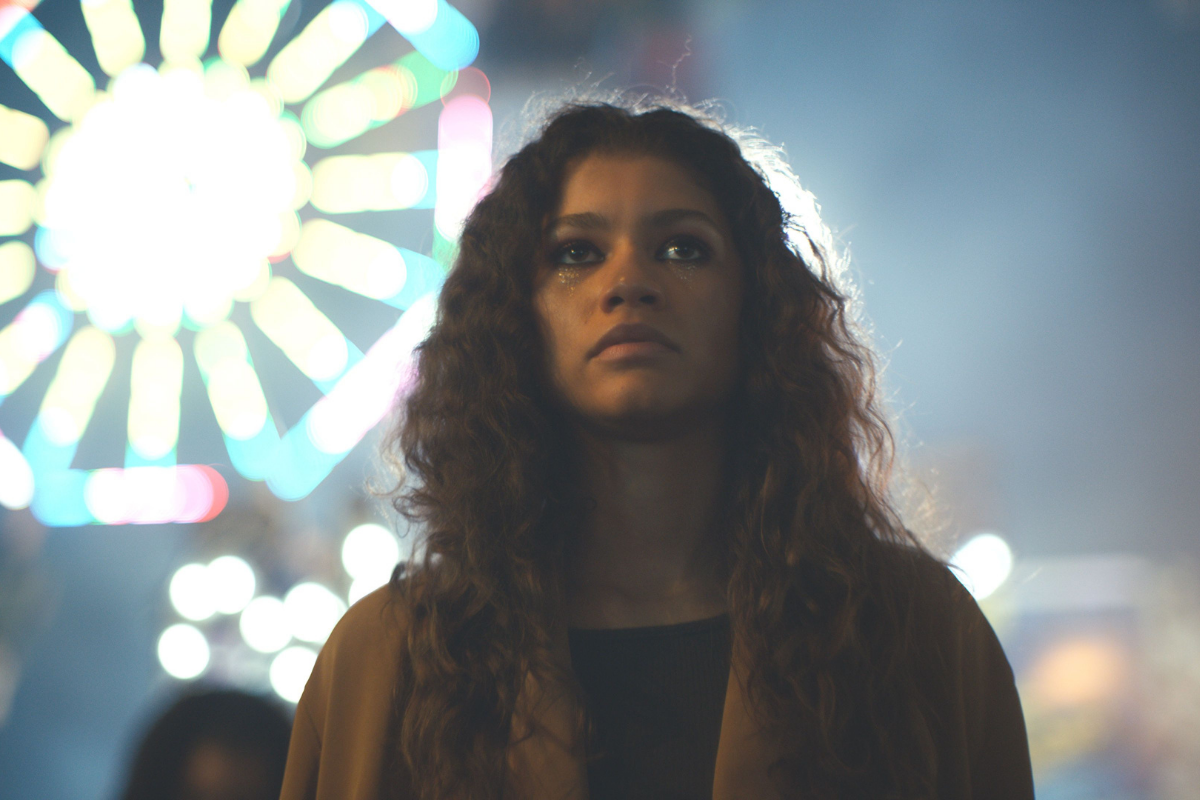My two favorite TV shows of all time are Gossip Girl and Euphoria. For many reasons, these shows really encapsulate my personality and what I look for in a good TV show. They are very similar. They are sort of the 2000s/2020s versions of one another. So, let’s break it down.
A Blonde, A Brunette and A Nate
Both of these shows have an iconic love triangle that involves a mistake-prone blonde, an alluring brunette, and a boy named Nate. While Nate Archibald is a good-hearted heartthrob and Nate Jacobs is a manipulative sociopath, you can’t deny this parallel.
Queen Bee Brunette
Both Blair Waldorf and Maddy Perez are dominant, confrontational and fashionable queen bees. They also represent what millennial women and Gen Z women aspire to be. Blair represents the millennials’ entitlement but showed how you use that for positive things, like career determination and giving relationship advice, often doing whatever it takes to get what she wants or helping her friends get what they want. While Maddy represents the Gen Z bad bitch mentality, showing that confidence isn’t self-indulgence, but confidence is knowing your self-worth.
Messy Blonde
Serena Van Der Woodsen and Cassie Howard are both best friends of the queen bee who are prone to making huge mistakes due to their huge desire for love and affection. This desire stems from their daddy issues and insecurity. Serena’s insecurity deals with her intellectualism, due to the fact that she often has no idea what her peers are talking about and has no direction in her life. Cassie’s insecurity stems from the fact that she isn’t good enough, so she will say whatever, dress, however, do whatever, and behave however she wants in order to get someone to like her.
Use Of Dark And Light Femininity
This femininity trope is often used when a piece of media has two women at the center of it, showing that they are both aspirational forms of femininity, just in different ways (Take the “Are you a Marilyn or a Jackie? campaign from Mad Men, with Marilyn Monroe, although blonde, as the dark and Jackie Kennedy as the light, or the more notable “Are you a Marilyn or an Audrey?” with Marilyn still as the dark and Audrey Hepburn as the light). Maddy and Blair are the dark. They play with seduction, desire, sexuality, fierceness, power, confidence and passion. These often involve the femme fatale and rich bitch archetypes, which remains true for Maddy and Blair. Cassie and Serena are the light. They play with sweetness, devotion, purity, compassion, innocence, forgiveness and nurture. These characters often fall into the damsel in distress archetype and always try to seem good, even when they are doing something bad, like when Cassie and Serena sleep with Maddy and Blair’s respective boyfriends, both of whom are named Nate.
Morally Questionable Leading Man
Nate Jacobs and Chuck Bass are too very disturbed men. The debate on who is worse could go on for days (personally, I think Nate is a million times worse). Both use psychological warfare to get what they want. However, Chuck eventually learned the error of his ways, apologizing to Jenny and Blair for his actions. Nate, at least in the first two seasons, hasn’t. So, only time will tell if he gets a Chuck Bass-esque redemption arc.
Drugs & Sex
Both shows deal with the topic of drugs and sex in a very matter-of-fact way, leaning more into the cautionary tale approach. While Gossip Girl shows these topics as frank parts of their 1% world, Euphoria shows them as unhealthy coping mechanisms.
Accurate Music
Each show, especially in the freshman season, features music real teens of the time listen to. Gossip Girl is riddled with Rihanna hits and cool indie bands from the 2000s. While Euphoria features an abundance of rap music from Anderson.Paak to Megan Thee Stallion.
Chaos While Secrets Are Revealed
Each of these shows features an iconic and chaotic situation where many secrets are revealed. In Gossip Girl, it’s the iconic “Whatcha Say” scene from the Season 3 Thanksgiving episode. In Euphoria, it’s when Rue outs Cassie for sleeping with Nate to Maddy during her downward spiral.
Teens As Antiheroes
The teens in these shows are very flawed. They all make mistakes and do very bad things. That makes them all anti-heroes because they are still characters we root for.
You’re Nobody Until You’re Talked About
Both shows use this approach. With Gossip girl, it was the tagline for the entire show, and it was Dan Humphrey’s motto for getting into Serena’s inner circle. Euphoria uses this same tagline as its approach to controversy.
Teen Panic
Both shows use a sort of teen panic due to their controversial subject matter. I mean, Gossip Girl used this for an entire (and iconic) marketing campaign that said things like “A Nasty Piece of Work” and “A Parent’s Worst Nightmare.” Euphoria is also invoking the same panic, with D.A.R.E. and other organizations criticizing the series.
Fashion-Forward
Both shows have undeniably made an impact on the fashion industry. Their now-celebrity costume designers Eric Daman and Heidi Bivens could be called the stylists of their respective generations. Gossip Girl made headbands, tights and the preppy aesthetic cool, while Euphoria made matching sets, zig-zag headbands and Y2K inspiration all-the-rage.
Designer Clothes
Both shows use designer clothes. Gossip girl was always on trend, taking things straight from the runway. While Euphoria uses Gen Z’s affinity for vintage pieces and seeks out more vintage designer pieces. Also, both casts work with huge designers. Blake Lively was a Chanel, Versace and Gucci muse. Leighton Meester also worked with Chanel, Proenza Schouler, Marchesa, as well as Vera Wang. Zendaya is a total style icon, even winning an award for it at the CFDA Awards. She also works with Valentino and Bugari. Alexa Demie is a certified Balenciaga girl. Sydney Sweeney has worked with Miu Miu, Tory Burch, Jacquemas and Alessandra Rich. Hunter Schafer has modeled for Prada and Rick Owens. Barbie Ferriera has a relationship with Jonathan Simkhai and YSL. Jacob Elordi and Maude Apatow have also worked with YSL, and Apatow also has a relationship with Miu Miu.
Creative Freedom
Both shows have a great amount of creative freedom when it comes to episodes-by-episode themes, cinematography and editing. Examples include Rue’s dick pic presentation in Season 1, Lily’s flashback episode in season 2, Lexi’s play, the 1920s-style editing during Blair and Chuck’s iconic limo scene, Lexi’s behind-the-scenes featurette formatted segment, in episode 1×17 of Gossip Girl when “Hook and Line” by The Kills played and the editing matched perfectly with the beats of the music, Nate’s fantasy sequence about Cassie and how Blair Waldorf would often dream herself into Old Hollywood movies, with her usually as whatever character Audrey Hepburn played. It made watching the show every week fun and thrilling.
High School Stereotypes Flipped Over
Both shows flip stereotypical high school archetypes. Blair might be the bitch, but she isn’t the bad girl. She’s the good girl who gets straight A’s and looks forward to college. Maddy is also the bad bitch, but she also is undeniably sweeter and more mature than most TV mean girls. Serena is the bad girl, but she is also one of the kinder characters on the show. Cassie is the good girl, but she is also the most sexually active character, which isn’t a bad thing but is often categorized in media as a bad thing to be, especially for women.
Now, these comparisons I mostly find funny, especially because these are two of my favorite TV shows of all time. The comparisons and parallels between these two shows aren’t inherently a bad thing. They show how much TV and teen media has changed, and what hasn’t changed. After all, it’s no wonder why these are my two favorite shows.
